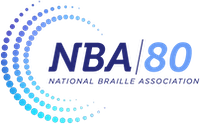joannavenneri
Forum Replies Created
-
AuthorPosts
-
joannavenneri
ParticipantGood catch! I will pass this on to the appropriate people.
Thank you!
--Joanna
joannavenneri
ParticipantGood catch! The colon is optional, but I have been told it is preferred. I prefer it myself. I use the colon.
--Joanna
joannavenneri
ParticipantI don't understand what the problem is. You have not mention the formatting that you have been attempting, other than listed table. Listed table is probably not the way to go because that format is for tables. Pronunciation keys are generally not treated as a table. There is even a separate section just for Pronunciation. You didn't say if you had looked there. If you wouldn't mind, take a look at 21.7, scroll down and look at all the examples. Let us know if you find anything helpful there.
--Joanna
joannavenneri
ParticipantI believe this is new. As with ALL special symbols, list only the ones that you use. If there are no nested boxes, don't list those. Just list the symbols you used, which would be opening and closing.
--Joanna
joannavenneri
ParticipantThis is essentially unchanged from 1997 Formats. The only difference is that the identifier, Picture, Cartoon, etc. is now enclosed in TN symbols. Look at Example 6-3 in Formats. That shows a picture with a caption and an accompanying description. Cover up the caption and pretend there was just the picture, the situation you describe. You would simply have a TN in 7-5 that says something like Picture shows a referee separating ... whatever. The purpose of the TN is to inform the reader that these words are NOT in the print, but provided by the transcriber.
When there is no caption, incorporate the identifier into the body of the TN by saying something like (TN)Picture shows the girl with the balloon(TN). That tells the reader there is no caption because ALL of the words are in the TN.
When there is a caption, the identifier ONLY is in the TN to inform the reader that that identifier is not in the print, but provided by the transcriber.
--Joanna
joannavenneri
ParticipantThese shapes are concerned with the physical appearnace of the print word. My feeling is that this material is inappropriate for braille. I did confer on this with some REAL experts at BANA and this view is confirmed. It was recommended that this material be omitted with a transcriber's note that explains it refers to the appearance of actual print and is not appropriate for braille. It was also suggested that if the material accounts for major portions of the text that the agency might be informaed that there are recurrcing situations throughout the book that are inappropriate for braille.
--Joanna
joannavenneri
ParticipantWhat the software does is irrelevant. I would follow the example in Formats.
--Joanna
joannavenneri
ParticipantRegarding the first part of your question about breaking centered headings that fall on more than one line--the trasncriber decides what is balanced and logical. That is why these are called guidelines. I would look over all the examples of centered headings in Formats to get an idea of how balanced and logical headings might be determined.
As for the second question, connected headings refers to headings connected by concept and meaning, not necessarily physically connected in print. There is no boxed material in those headings. That is purely a decorative design. A box sets of text from surrounding text. There is nothing set off there.
--Joanna
joannavenneri
ParticipantThis is actually unchanged from previous Formats. "Reviews" in a textbook usually are nothing more than advertising. This guidelines also conforms to Library of Congress standards.
--Joanna
joannavenneri
ParticipantThat's why we're here! And thank you for that interesting question. In researching it, I have learned about that topic than I ever thought possible.
--Joanna
joannavenneri
ParticipantAwesome. Now I get it! Thank you for clearing that up for me.
joannavenneri
ParticipantSection 1.12 covers letter/number print page combinations. Example 1-16 shows various print configurations and braille solutions, but none specifically with a space. However, using what we have and what we know, spaces are never used in print page numbers and the hyphens that do commonly appear in these print combinations are omitted in braille.
The suggest for these pages is to close up the space [simbraille],,sc;vii[/simbraille]. The letter sign cancels the double caps.
Joanna
joannavenneri
ParticipantOnce again, it doesn't matter what it says in any rule prior to 2011 Formats. And once again I'm sorry but I just don'w see what difference it makes as to whether you start at the top or the bottom of the page. Maybe I'm missing something.
But I do also repeat once again, that current 2011 Formats simply says that the blank lines should be distributed evenly as much as possible. It says nothing about where you start from.
--Joanna
joannavenneri
ParticipantIt depands on the reason for the TN and the type of information is conveys. Do you have an instance that you can ask about?
--Joanna
joannavenneri
ParticipantSo it does not matter whether the blank lines between segments are inserted starting from the top or starting from the bottom?
-
AuthorPosts
